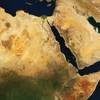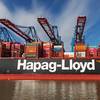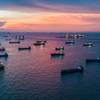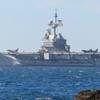The 12th annual National Defense Industrial
Association (NDIA) Expeditionary Warfare Conference convened at the Bay
Point Marriott Resort Village Golf and Yacht Club Oct. 22-25. The event
provided a venue for the Department of Defense and Industry to address
issues relative to this year's theme, "Fighting Today... and Preparing
for Future Challenges."
Keynote speaker Dr. Donald C. Winter, Secretary of the Navy, spoke on
how the new maritime strategy, unveiled Oct. 17, 2007 at the
International Seapower Symposium in Newport, R.I., was structured to
maintain maritime dominance and homeland security.
"The health of our economy depends on safe transit through the seas -
and the trend in international commerce is ever upward," said Winter,
adding that sustaining a powerful worldwide presence was imperative to
not only win wars but deter them.
"All these realities suggest that maritime dominance - which has been a
cornerstone of U.S. military strategy since World War II - is still
indispensable to America's security interests," said Winter.
Many keynote speakers called attention to the fact that America's new
maritime strategy includes two new expanded capabilities expected of our
naval powers - that of humanitarian assistance and disaster response.
Adm. Jonathan Greenert, Commander, U.S. Fleet Forces Command, released a
statement Oct. 23, 2007 reiterating his remarks during the conference's
opening session, which mentioned strengthening communications with U.S.
citizens and allied coalitions.
"This strategy really commits our maritime services to a higher level of
cooperation with the world," Greenert said. "But it also commits a
higher level of cooperation with our citizens. There was a lot of work
done to create a product that is meant to be able to be read by citizens
of the United States and allow them to understand what our maritime
strategy is."
Commenting on the challenge of putting Marines on foreign shores, Gen.
James T. Conway, Commandant of the United States Marine Corps,
emphasized the importance of strengthening our expeditionary forces and
developing ways to provide Marines a safer transit from sea to shore.
"Our nation requires us to provide, along with the Navy, an amphibious
forcible-entry capability, which consists of a minimum of two Marine
Expeditionary Brigades to serve as an assault echelon," Conway said.
"And as mandated by the 82nd Congress, the Corps serves as our nation's
shock troops - we are to be most ready when the nation is least ready."
Several speakers remarked that our nation may strengthen its reputation
by having added humanitarian assistance and disaster response to U.S.
maritime strategy. However, a message emphasized throughout the
conference was that America must sustain itself as the world's most
elite expeditionary warfare force ever known.
Secretary Winter also stressed the importance of strengthening the joint
efforts of U.S. Navy-Marine Corps expeditionary forces - and doing so
with an historical significance.
"The unique value of the Navy-Marine Corps and its expeditionary
capability has long been recognized," Winter said. "That value, however,
is at an even greater premium today....Threat uncertainty is compounded
by coalition uncertainty, for we live in an era in which coalition
partners may not be available as hoped or expected."
By Dan Broadstreet, NSWC PCD Public Affairs
Sponsored Content
LR - Fit for 55: Managing compliance and optimising operations

Use Roxtec seals, services and software

Subscribe for
Maritime Reporter E-News
Maritime Reporter E-News is the maritime industry's largest circulation and most authoritative ENews Service, delivered to your Email five times per week









